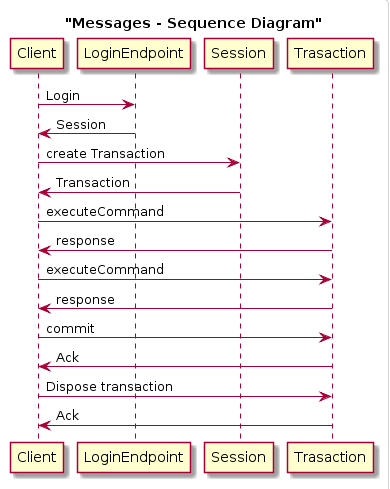in my project I want to have multiple clients connecting to a service. I am using the java Rsocket implementation.
The service should maintain a state for each client. Now at this point I either can manage the clients by some identifier. This option I have already implemented. But I do not want to manage the session manually using strings.
So another idea is to identify the clients by the Rsocket connection. Is there a way to use Rsocket channel for identification of a specific client?
Imagine an example service and a couple of clients. Each client has the Rsocket channel with the service up and running. Is there a way to identify these clients on the server side using the Rsocket channel? Would be amazing if you could show a programmatic example of such behavior. Thank you!
EDIT (describing the case more detailed)
Here is my example.
We currently have three CORBA objects that are used as demonstrated in the diagram:
- LoginObject (to which a reference is retrieved via NamingService). Clients can call a login() method to obtain a session
- The Session object has various methods for query details about the current serivce context and most importatly to obtain a Transaction object
- The Transaction object can be used to execute various commands via a generic method that take a commandName and a list of key-value pairs as parameters. After the client executed n commands he can commit or rollback the transaction (also via methods on the Transaction object).
so here we use the session object to execute transactions on our service.
Now we decided to move away from CORBA to Rsocket. Thus we need Rsocket microservice to be able to store the session's state, otherwise we can't know what's going to be commited or rolled back. Can this be done with just individual Publisher for each client?


Publisherfor each client, so why do you need state? – Thicket